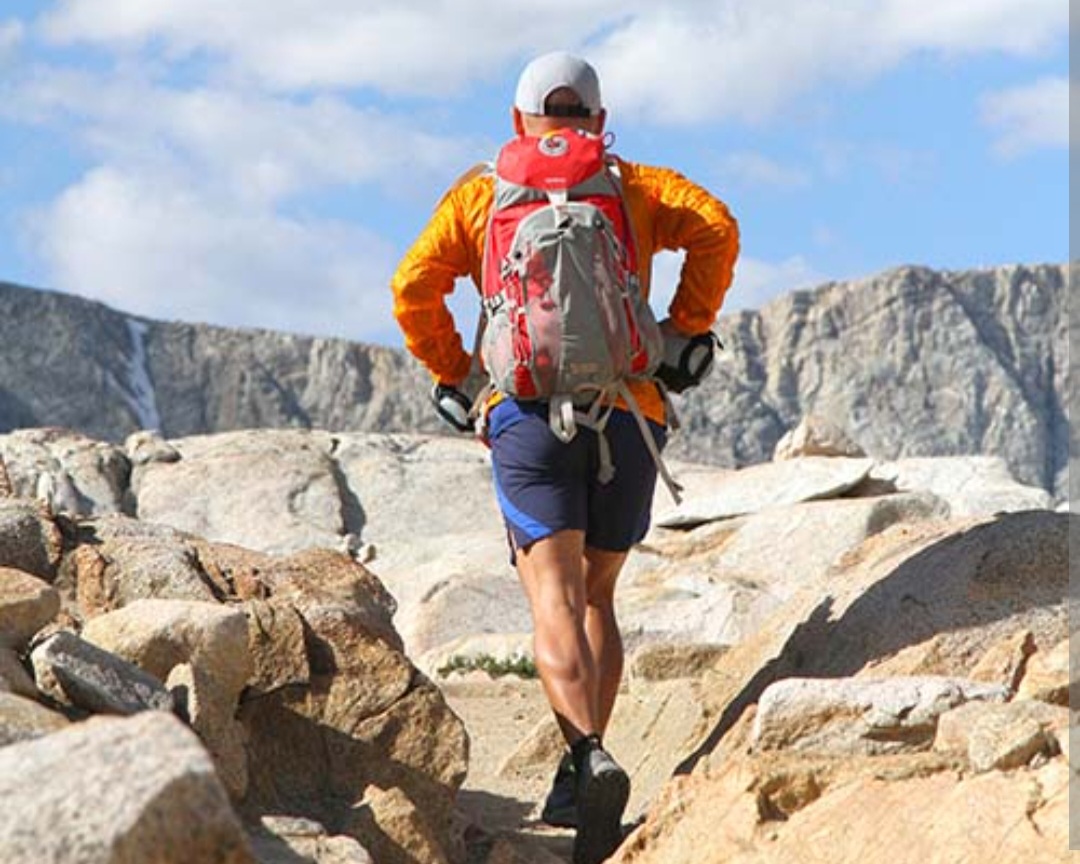Fastpacking is a fusion of trail running and ultralight backpacking. It is moving at a pace that is normally faster than walking, which is usually at a gradient adjusted speed that’s faster than 7.9 km/hr (7:36 min/km).
A fastpacker normally moves at a gradient adjusted speed that is faster than 7.9 km/hr (7:36 min/km)
Normally, fastpackers hike the uphill sections while running the flats and downhill sections. In order to move quickly, fastpackers carry a light pack with essential supplies, including a sleeping bag and a lightweight shelter if accomodation such as a mountain refugio or albergue is not available. The lightweight shelter could be a tarp or bivvy. The weight carried will be no more than 7 kg, though some fastpackers achieve a weight of less than 4.5 kg.
A Fastpacker carries no more than 7 kg of base weight.
On a recent unsupported overnight camping trip, my base weight was less than 6 kg. Base weight is the weight without consumables, such as water, food and fuel.
An unsupported trip is one where you are self-sufficent, making no use of outside assistance.
Traveling light allows one to explore more places and stay overnight when you find a place that you like. For example, here is a fastpacking trip that I did recently, where I watched the sunset from a local summit, slept under the stars, awoken up to a sunrise, and then continued my run the next day.
Here is minimalist packing list.

